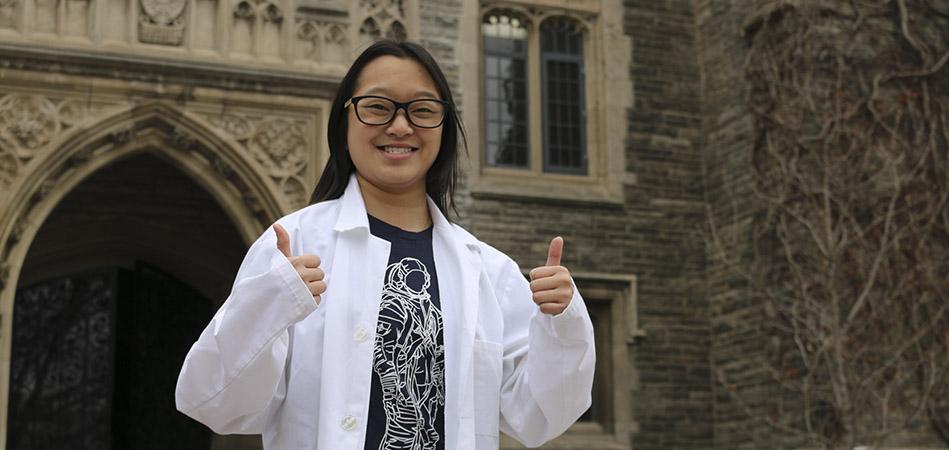Linda Dao knows having your head in the clouds is rewarding

Growing up, Linda Dao thought she was going to become a dentist.
Fast forward a few years and she’s spending time in both Israel and France studying Space Medicine after graduating from Biochemistry and Biomedical Sciences at McMaster.
The leap from dentistry to space medicine was sparked by her brother’s advice to broaden her career options. Dao’s interest in planets and meteor showers led her to researching programs that incorporated both astro-physics and biochemistry. She discovered that McMaster offered a third year Space Medicine course.
Space Medicine, first introduced at McMaster in 2009 and the first of it’s kind in Canada, allowed Dao to combine all her interests into one field. During her undergrad she co-found the first student-run astronomy club on campus, the McMaster Observatory Outreach at Night (MOON) Club.
Dao was given a full scholarship to attend the Space Studies Program through the International Space University. The program only accepts around 100 students from around the world every year and Dao competed against established professionals working in the space industry.
The program, which moves around, will take place this year in Haifa, Israel at the Technion Institute. Following that, Dao will pursue a one-year Master’s of Space Science in France, also through the Space University.
Space medicine looks at the physiological effects of microgravity on the human body spending extended periods of time in space. Effects such as arteries stiffening, similar to that of an aging body, bone deterioration and muscle loss are all elements that get tested on astronauts before, during, and after a space mission. The goal is to find solutions to circumvent these issues while astronauts are in space.
Research findings for space missions are often used here on Earth: for instance, technology behind the famous Canadarm is used to diagnose and treat breast cancer with less invasive surgeries.
Dao is advocating for post-secondary institutions to make courses like Space Medicine more accessible for students in other disciplines beyond Health Sciences, Physics, or Engineering. She says it’s important to note that space is an interdisciplinary subject – one that also involves things like politics and linguistics.
Dao previously won a contest in 2013 hosted by the Canadian Space Agency that led to astronaut Chris Hadfield testing a research experiment she devised for testing the effects of microgravity. Hadfield followed up the experiment with a phone call with Dao.
“He gave me feedback about the experiment and told me, ‘There is no better time in anything because if you consider there to be a better time you’ll never reach it,’ and that’s a mantra I’ve kept with me ever since.”
Read about Dao’s story also featured in the Toronto Star


